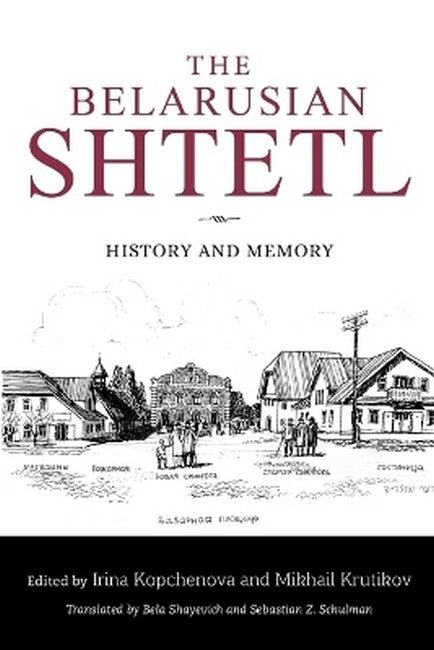Irina Kopchenova is Educational Programs Coordinator at the SEFER Center, Moscow, and Junior Research Fellow at the Institute of Slavic Studies in the Russian Academy of Science. She is editor of The Shtetl of Hlybokaye in Contemporary Cultural Memory and Jews on the Map of Lithuania: The Case of Birzai. Mikhail Krutikov is author of four books and co-editor of ten collected volumes on various aspects of Yiddish culture. He is Professor of Slavic Languages and Literatures and Preston R. Tisch Professor of Judaic Studies at the University of Michigan.
Request Academic Copy
Please copy the ISBN for submitting review copy form
Description
Acknowledgments Note on Geographical Names, Transliteration and Maps Maps Introduction, by Samuel D. Kassow, Irina Kopchenova, and Mikhail Krutikov History, Folklore, Ethnography 1. Between Mestechko and Shtetl: Ethnicity and Religion in Belarusian Small Towns, 1800s-1930s, by Ina Sorkina 2. The Soviet Belarusian Shtetl: Between Tradition and Modernization in the 1920s and 1930s, by Arkadi Zeltser 3. Days of Remembrance for Jews of the Russo-Belarusian Borderlands, by Svetlana Amosova 4. Why Hitler Didn't Like the Jews: The Folklore Version of the Reasons Behind the Holocaust, by Andrei B. Moroz Hlybokaye: Memories of the Shtetl 5. The Death of the Shtetl of Hlybokaye through the Eyes of Its Teenagers, by Julia Bernstein 6. A Family between the Ghetto and Red Army Partisans: Two Holocaust Testimonies from Hlybokaye, by Julia Bernstein 7. Daily Life in the Hlybokaye Ghetto: Photographs from the United States Holocaust Memorial Museum, by Irina Kopchenova 8. Memory on Demand: The Jewish Past in Today's Hlybokaye, by Mikhail Lurie and Natalia Savina Appendix The Shtetl of Zhaludok: A Memoir, by Miron Mordukhvich Index
"In a world of AI and fake news, it is refreshing to come across two sophisticated scholars who still remember that they are studying real people. They successfully brought together in one volume expert academic analyses of small-town (shtetl) life written by some of the best researchers from Eastern Europe together with a collection of exceptional primary sources. There is nothing like it. The Belarusian Shtetl is hard to put down and it is impossible to stop thinking about it."-Shaul Stampfer, Sandrow Professor of Soviet and East European Jewish History (emeritus), Hebrew University of Jerusalem

